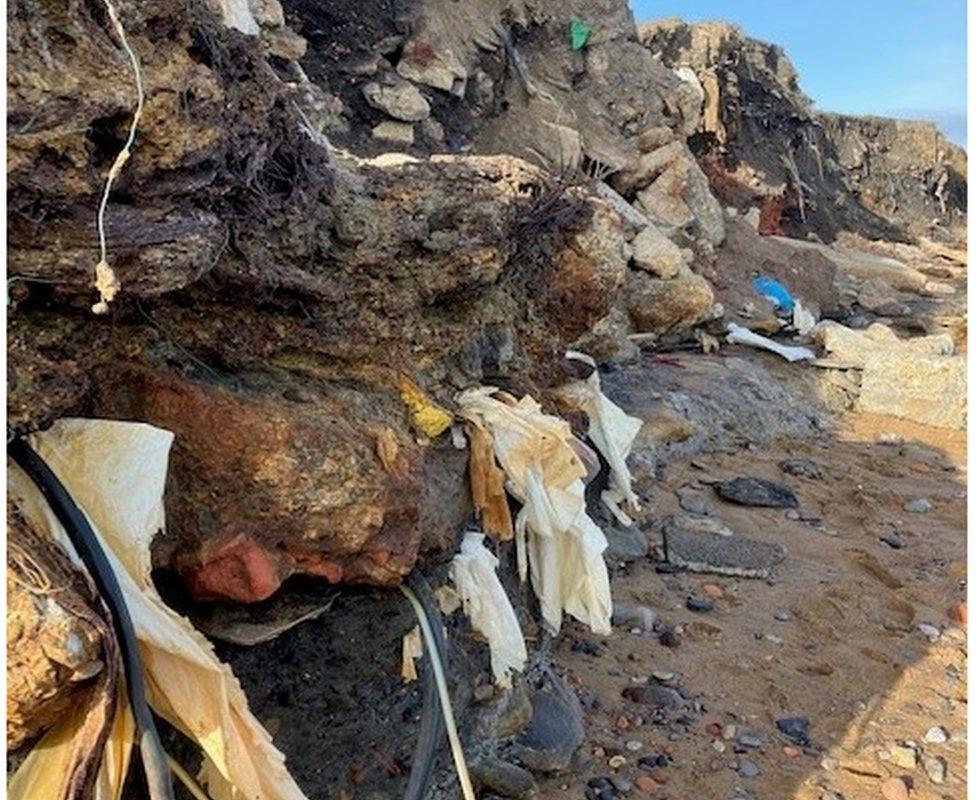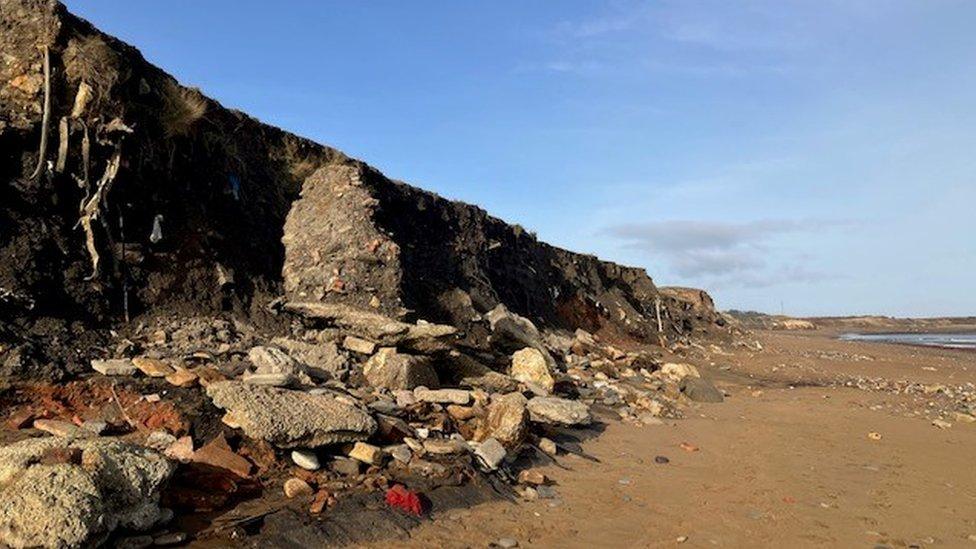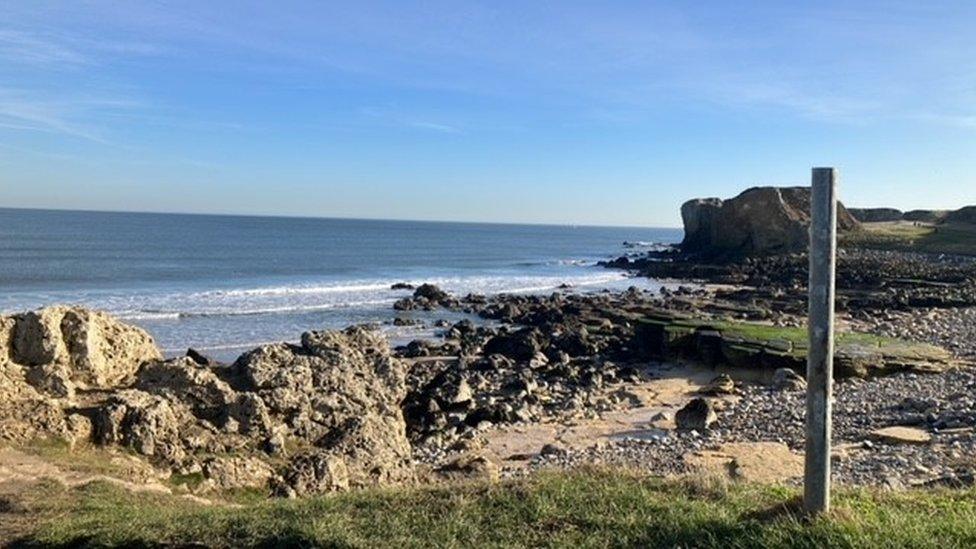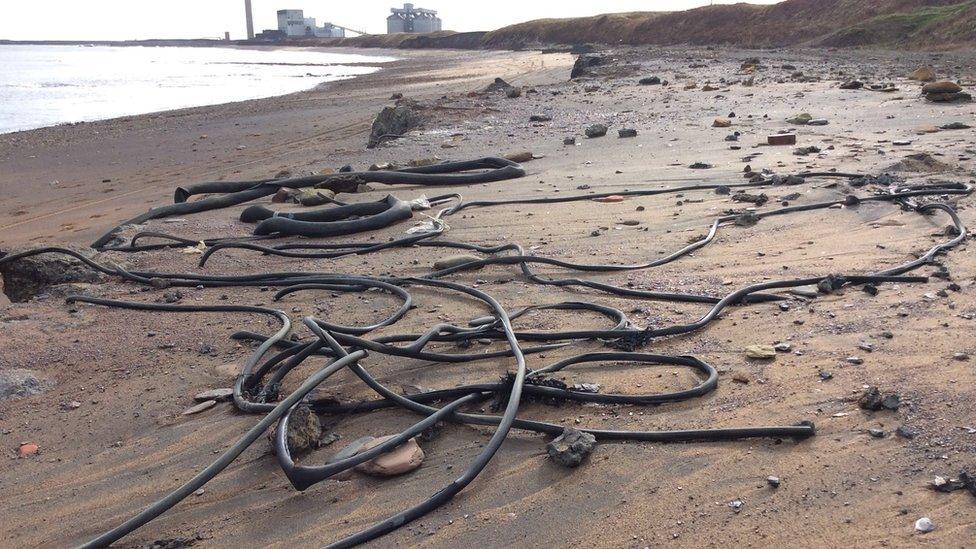Pollution warning over old landfill sites on North East coast
- Published

Waste and pollution spill from an old landfill site at Lynemouth beach, Northumberland
Urgent work is needed to prevent coastal landfill sites polluting beaches and the sea, according to the Local Government Association (LGA).
It is estimated there are 1,400 historic tips around the country, with several on the North East coast.
Coastal erosion means many are edging closer to the shoreline and risk spilling their contents into the sea.
The government said it was committed to working with local authorities, which are responsible for the sites.
The LGA said low-lying coastal areas had historically been an easy target for the disposal of toxic rubbish. Many are more than 100 years old, which means it is not always known what they contain.
Local councils, which have inherited the sites, are calling for urgent funding to pay for work to stop rubbish and pollution escaping.
An LGA survey has identified 195 historic landfill sites that need urgent protection from tidal flooding or erosion.

High levels of heavy metals, such as lead, have been found at Lynemouth
At Lynemouth in Northumberland, rubbish has been spilling on to the beach for years.
Steve Lowe from the Northumberland Rivers Trust said: "If you look on the beach, there's very little in the way of seaweed or algae.
"From the work we've done with Northumbria University, we have found very high levels of contaminants of heavy metals - lead, cadmium, things like that."
Northumberland County Council has funding to clean up the site at Lynemouth, but work cannot start until next year.
Down the coast, South Tyneside Council has managed to protect the historic landfill site at Trow Quarry, south of Sandhaven beach.

Industrial and domestic waste was tipped into Trow Quarry in the 1900s
Laura Turvey from South Tyneside Council said: "We recognised there was a need to do something about it due to potential risks to public health and also the environment, so we applied for some funding to the environment agency and Defra, and we managed to secure £1.8m so we were really, really fortunate."
But the boulders that have been put down to stop the rubbish getting into the sea will only last for 50 years.
South Tyneside councillor Ernest Gibson represents the LGA and said finding a solution was a problem because "we don't have the finances from government to do it".
"We have no finances to really relocate these sites. Moving them inland is not an option. We need to address it," he said.
A Defra spokesperson said: "We are committed to working closely with local authorities who have the responsibility of ensuring historic landfill sites are managed in a consistent and environmentally-friendly way.
"Findings from the LGA survey will help inform our planned national assessment on the impacts of coastal erosion and flooding at historic coastal landfill sites, which will help improve management of these sites in the future."

Follow BBC North East & Cumbria on Twitter, external, Facebook, external and Instagram, external. Send your story ideas to northeastandcumbria@bbc.co.uk, external.
- Published6 February 2023
